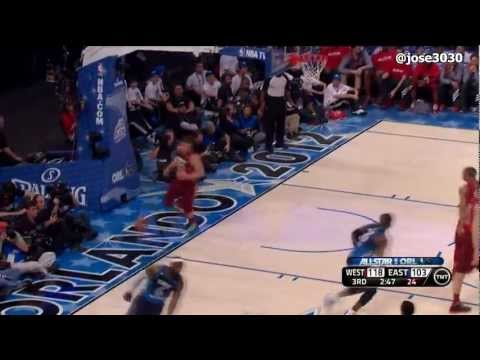Buried on the bench for much of last season, Rudy Gobert became one of the league’s most dominant defensive big men, and helped the Utah Jazz finish the season as one of the league’s hottest teams.
The rise of Rudy Gobert this season was a surprise to many around the league, though if you ask some who cover the Utah Jazz (such TLM Podcast All-Star guest Amar of SLC Dunk) you’ll hear that it wasn’t all that suprising, but rather imminent given how little of a chance Gobert had to play last season. In other words, Gobert always possesed the ability to dominate, but former head coach Ty Corbin didn’t play him consistently enough.
On one hand, it’s hard to fault Corbin — the 7’2” Frenchmen was considered a raw talent with years of development needed after being drafted 27th overall in 2013. As a rookie, Gobert averaged just 2.3 points and 3.4 rebounds playing just 9.6 minutes per game. Finding time on the court was tough, and given that Corbin was coaching for his job (unsuccessfully of course) playing a rookie wasn’t going to a high priority. Plus, Utah was still holding out that Enes Kanter would become the dominant big men they had projected him to be. By the midway point of this season however, it was clear that Gobert was making a bigger impact on the court than Kanter, and as such Kanter was shipped off to OKC to the delight of Jazz forward Trevor Booker.
This season, Gobert would average 8.4 points and 9.5 rebounds, playing 26.3 minutes per game. Whether Gobert was ready last season or not, the improvement he made this season has been scary good. He played defense at an elite level for much of the season, and once he became the full-time starter, his defensive dominance translated into wins the last two and a half months of the season.
Gobert’s impact is most apparent when examining Utah’s pre and post All-Star break numbers. In 53 games before the break Utah was 19-34, allowing 98.2 points per game as Gobert averaged 6.9 points and 7.3 rebounds per game in 21.9 minutes, starting in only eight of the 53. After the All-Star break, the Jazz went 19-10, allowing only 89 points per game, with Gobert starting all 29 games and averaging 11.1 points and 13.4 rebounds per game in 34.4 minutes. While Utah’s 19-10 post ASG record shouldn’t be fully credited to Gobert, he was certainly a primary reason for their late season success.
Our own Daniel Coughlin wrote about Gobert’s impact back in January when Gobert wasn’t even a full-time starter. Even then, Gobert was playing defense at an elite level:
Gobert is the top ranked center in the league in opponent field goal percentage at the rim, allowing opponents to shoot just 38.1 percent. These numbers place Gobert ahead of names like Andrew Bogut, Roy Hibbert, Larry Sanders and Dwight Howard.
He would finish the season as league’s best rim protector, allowing opponents to shoot just 40.4 percent at the rim while saving 2.43 points per game, also best in the league. He would also finish third in the league in blocks per game (2.3), second in total blocks (189) sixth in total rebounds (775), fifth in total rebound percentage (20.7), and fifth in defensive rating (98.0). His offensive rankings were strong as well, as he ranked sixth in true shooting percent (.627), and eigth in offensive rating (122.1). When you remember that he averaged just 26.3 minutes per game, and only started in 37 of 82 games, it’s remarkable that he was able to finish top ten in total rebounds and blocks.
Gobert was always viewed as a defensive minded player, but there were questions as to whether he would develop into a starting caliber big men, or as a bench rotation player. Not only did he show vast improvement this season, but his dominance on defensive and rebounding the ball has changed the long-term outlook of the Utah Jazz, who have been in the midst of a rebuilding project. As one of the league’s best teams after the All-Star break,
Utah’s rise up the standings could come quicker than initially anticipated, and Gobert is a big reason for that. Becoming the full-time starter has allowed Derrick Favors to play as the four man, his most comfortable position. Favors, along with wing man Gordon Hayward, had career years as well, but it wasn’t until Gobert was logging 30+ minutes a night that the wins starting coming for the Jazz. If he can build off this strong season, a defensive player of the year honor could be on the horizon.
[youtube https://www.youtube.com/watch?v=Ig5U6xMPoow]
Add The Sports Daily to your Google News Feed!
